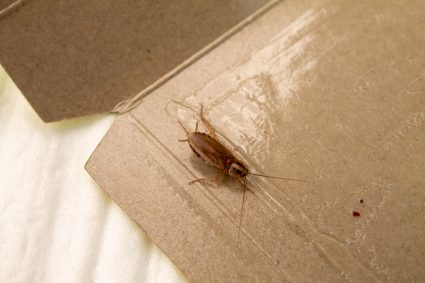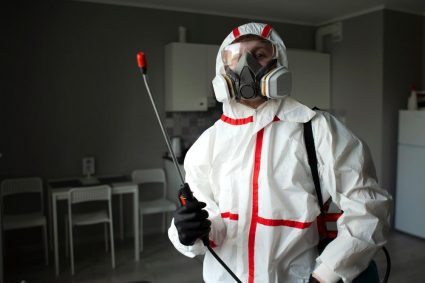
Gnats and mosquitoes are more than just annoying pests. They can also carry diseases, making it essential to find effective ways to repel them. In this comprehensive guide, we’ll explore various methods and substances that can help keep these pests at bay.
Gnats and mosquitoes can be repelled by a variety of methods. Natural repellents include citronella, lemon, vanilla, lavender, essential oils, vinegar and soap, and coconut-scented soap. Commercial repellents like Buggins Natural Insect Repellent, Repel 100 Insect Repellent, and Thermacell E90 Rechargeable Mosquito Repellent are also effective. Preventive measures like eliminating standing water, sealing cracks, installing screens, maintaining your garden, using insect repellent, and wearing appropriate clothing can also help. Certain plants like lemon thyme, marigolds, lavender, citronella grass, and others can also repel these pests.
Natural Repellents
Natural repellents are a safe and environment-friendly way to ward off gnats and mosquitoes. Some of the most effective natural repellents include:
- Citronella: Often used in candles and torches, citronella can help repel mosquitoes from your outdoor spaces.
- Lemon, Vanilla, and Lavender: These scents are disliked by gnats and mosquitoes. Consider spraying these scents around your outdoor area.
- Essential Oils: Certain essential oils, such as lemon eucalyptus, lavender, and cinnamon oil, are known to repel mosquitoes.
- Vinegar and Soap: A dish filled with vinegar and soap can attract gnats, keeping them away from you.
- Coconut-Scented Soap: Bathing with coconut-scented soap can help repel mosquitoes.
However, remember that natural repellents may need frequent reapplication as they may not last as long as synthetic ones.
Commercial Repellents
Commercial products are designed to offer longer protection against gnats and mosquitoes. Some popular choices include Buggins Natural Insect Repellent, Repel 100 Insect Repellent, and Thermacell E90 Rechargeable Mosquito Repellent. These products contain active ingredients like DEET, picaridin, and plant-based oils that effectively disrupt the insect’s ability to detect human scents.
Preventive Measures
Prevention is always better than cure. To minimize the likelihood of attracting gnats and mosquitoes, consider these steps:
- Eliminate Standing Water: Mosquitoes lay their eggs in standing water. Eliminate sources of stagnant water to reduce their breeding grounds.
- Seal Cracks and Openings: Prevent gnats from entering your home by sealing small openings around windows, doors, and the foundation.
- Install Screens: Using screens on windows and doors can help keep mosquitoes and gnats outdoors.
- Maintain Your Garden: Overripe produce and organic waste can attract gnats. Regularly clean your garden to keep gnat populations low.
- Use Insect Repellent: Apply EPA-registered insect repellents containing DEET, picaridin, or IR3535.
- Wear Appropriate Clothing: Opt for long-sleeved shirts and long pants to deter mosquitoes.
Plants That Repel Gnats and Mosquitoes
Certain plants and herbs can naturally repel gnats and mosquitoes. These include:
- Lemon Thyme
- Marigolds
- Lavender
- Citronella Grass
- Catnip
- Rosemary
- Basil
- Scented Geraniums
- Ageratum (Floss Flower)
- Mint
Planting these in your garden or placing them in pots around your outdoor living areas can help keep gnats and mosquitoes at bay.
In conclusion, while gnats and mosquitoes can be a nuisance, there are various natural and commercial methods available to repel them. Remember, prevention is key, and a combination of these methods can provide the most effective protection.
Frequently Asked Questions
How often should I reapply natural repellents?
Natural repellents should typically be reapplied every 2-3 hours, but this can vary depending on the specific product and the concentration of the active ingredient.
Are commercial repellents safe for children and pets?
Many commercial repellents are safe for children and pets, but it’s always important to read the product label and follow the manufacturer’s instructions. Some products may not be suitable for young children or certain types of pets.
Can I use these repellents indoors?
Yes, many of these repellents can be used indoors. However, always ensure adequate ventilation, especially when using essential oils or other substances that can emit strong odors.
Do all plants repel both gnats and mosquitoes?
Not all plants repel both gnats and mosquitoes. For example, basil and rosemary are more effective against mosquitoes, while marigolds can repel both pests. It’s best to use a combination of plants for the most effective protection.
How effective are preventive measures compared to repellents?
Preventive measures can be highly effective in reducing the presence of gnats and mosquitoes. However, they are best used in conjunction with repellents for maximum protection.











